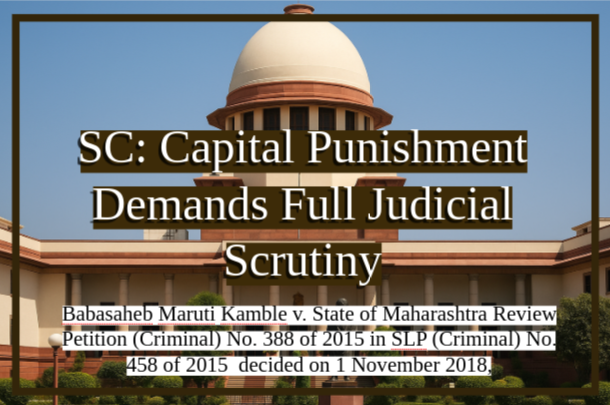SCOI Shields Lawyers from Unwarranted Summons: Defending the Sanctity of Legal Privilege
- M.R Mishra

- Nov 5, 2025
- 2 min read
In a judgment of immense consequence for the legal fraternity and the criminal justice system, the Supreme Court has drawn a clear constitutional and statutory line against the practice of investigating agencies summoning lawyers for questioning merely because they represented an accused or gave a legal opinion.
The Court, speaking through Justice K. Vinod Chandran, emphatically held that such summons, without falling within the narrow exceptions of law, are illegal and an affront to the independence of the legal profession.
What's The Matter?
The case arose from a notice issued by the Ahmedabad Police under Section 179 of the Bharatiya Nagarik Suraksha Sanhita, 2023 (BNSS), summoning an advocate who had represented a client in a bail matter.
The High Court’s refusal to quash the summons, citing lack of cooperation by the advocate, triggered a suo motu intervention by the Supreme Court to address the larger question can lawyers be compelled to disclose information about clients or appear before the police in connection with cases they handle?
In a detailed 78-page judgment, the Court reaffirmed that the advocate–client privilege under Section 132 of the Bharatiya Sakshya Adhiniyam, 2023 (BSA) the successor to Section 126 of the Indian Evidence Act, 1872 forms the cornerstone of legal representation.
It ensures that every communication between a client and lawyer made in confidence for professional purposes is sacrosanct and cannot be disclosed without express consent, save in cases where the communication furthers an illegal act or fraud.
The Court noted that summoning lawyers to “know true details” of a case strikes at the heart of justice itself, exposing clients’ defences and eroding faith in the confidentiality of legal consultation.
Rejecting calls for new “guidelines” akin to Vishaka v. State of Rajasthan or Jacob Mathew v. State of Punjab, the Court held that existing statutory safeguards are sufficient and that judicial directions cannot override the express scheme of the BNSS.
Instead, it reinforced that any summons to an advocate must:
Be issued only with the prior written approval of a superior officer not below the rank of Superintendent of Police, and
Clearly state how the case falls under the exceptions under Section 132 of the BSA.
Any deviation, the Court held, would render the summons void and open to challenge under Section 528 of the BNSS before constitutional courts.
The judgment firmly rejected the notion of treating lawyers as mere “witnesses” in cases where they act as advocates, observing that doing so would chill free legal advice and weaken the constitutional guarantee of fair representation under Articles 14, 21, and 22.
At a broader level, the Court’s reasoning reflects a powerful reaffirmation of the lawyer’s role as a guardian of liberty not an accessory to the accused, but an officer of the court entrusted with preserving the fairness of justice.
In evocative language, the judgment cited Shakespeare’s Henry VI to remind that “getting rid of lawyers is a step toward totalitarianism.”
By protecting the confidentiality between lawyer and client, the Court has not only defended the bar but also preserved the citizen’s right to effective legal representation and the integrity of the justice system itself.







Comments